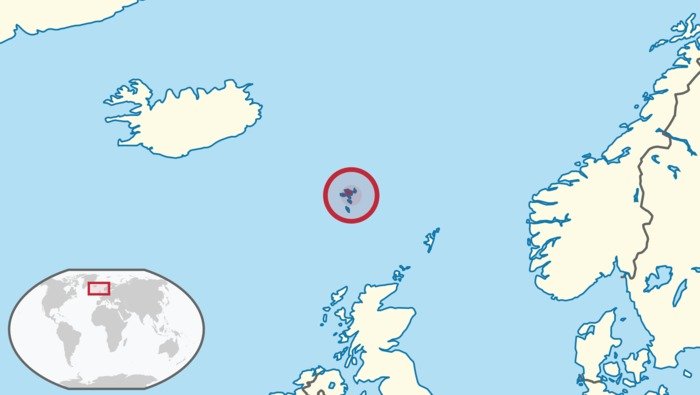Faroe Islands. Credit: TUBS, Wikipedia, Creative Commons
DURHAM, England, Aug. 20 (UPI) -- The Faroe Islands, halfway between Norway and Iceland, were colonized much earlier than previously believed and it wasn't by the Vikings, researchers say.
Archaeologists from Britain's Durham University and the National Museum of the Faroe Islands report evidence places human colonization in the 4th to 6th centuries A.D., at least several centuries earlier than previously thought.
The Faroes were the first stepping-stone beyond Scotland's Shetland Islands for the movement of European peoples across the North Atlantic that eventually brought them to the shores of continental North America in the 11th century A.D., about 500 years before Columbus made his famous voyage.
The scientists said research at Faroe Islands sites suggests human settlement pre-dating Viking times.
"There is now firm archaeological evidence for the human colonization of the Faroes by people some 300-500 years before the large scale Viking colonization of the 9th century A.D., although we don't yet know who these people were or where they came from," Durham archaeologist Mike Church said.
Analysis of extensive windblown sand deposits showed they contained patches of burnt peat ash, a sign of human activity.
"Although we don't know who the people were that settled here and where they came from, it is clear that they did prepare peat for use, by cutting, drying and burning it which indicates they must have stayed here for some time," Simun V. Arge from the National Museum of the Faroe Islands said.
The findings challenge the nature, scale and timing of human settlement of the wider North Atlantic region, the researchers said.
Today the Faroe Islands are a largely self-governing country under the sovereignty of the Kingdom of Denmark.















